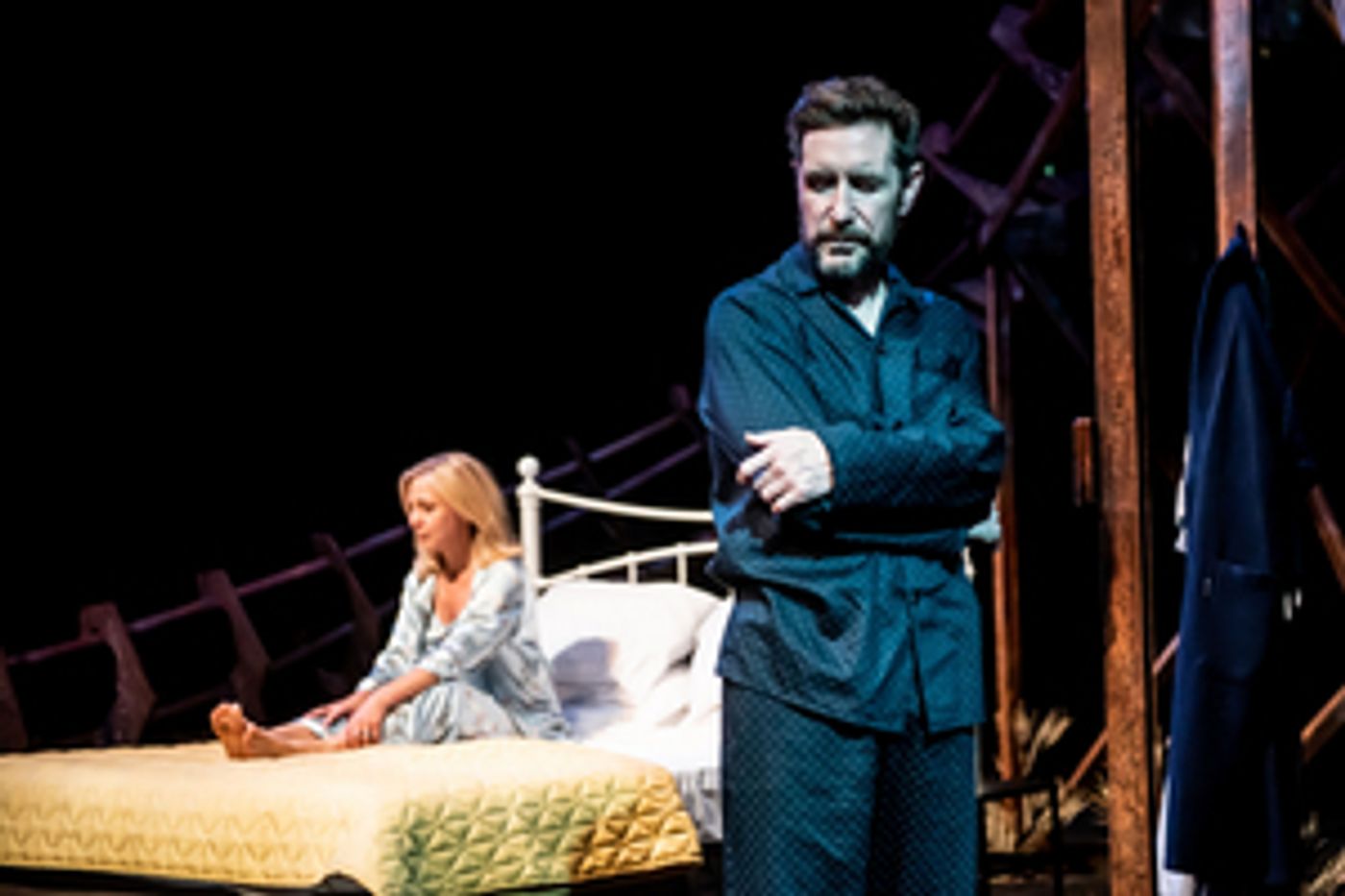Review: BAD NIGHTS AND ODD DAYS, Greenwich Theatre
Four short plays from at least 40 years ago yield much to reflect upon in this mini-anthology of Caryl Churchill's work.

![]() You couldn't move for telekinesis in the 70s. Uri Geller and Kreskin were staples of prime time TV and every school playground had tales of The Exorcist's more famous scenes - X certificate notwithstanding. Valerie, a middle-aged ex-Marks and Spencer worker, is riding that wave, paraded round England like a Victorian freak and soon off (as mentalists so often were) to Harvard to be poked and prodded. But, ever reluctant, her powers are waning as the life she leads fails to bring satisfaction - but is it all, as t'were, in her head?
You couldn't move for telekinesis in the 70s. Uri Geller and Kreskin were staples of prime time TV and every school playground had tales of The Exorcist's more famous scenes - X certificate notwithstanding. Valerie, a middle-aged ex-Marks and Spencer worker, is riding that wave, paraded round England like a Victorian freak and soon off (as mentalists so often were) to Harvard to be poked and prodded. But, ever reluctant, her powers are waning as the life she leads fails to bring satisfaction - but is it all, as t'were, in her head?
Seagulls is the first of four dives into the extensive and extraordinary back-catalogue of Caryl Churchill and firmly locates us a couple of generations back in time, where the distance means that the issues raised find parallels rather than congruent fits with our lives today - and are all the more interesting for it.
Though the play was originally inspired by the dreaded writer's block, Kerrie Taylor's nervy, normal Valerie brought to mind Susan Boyle - a woman's life transformed in middle-age by the power of celebrity. It suggests that not everybody would be happy in The Greatest Showman's gang of multi-talented misfits, because some people want to say "This is me" under their breath.
Three More Sleepless Nights has a touch of La Ronde about it, as we're privy to three bedroom scenes. In the first Frank bickers with Margaret, each talking over and across the other, as all the faults and irritations that married life reveals about a spouse spew forth at empathy level zero. Things are different (though only on the surface) in the second bedroom, where Pete explains the plot of Alien to an alienated Dawn, whose incipient breakdown he thinks can be halted with a little bread and cheese.
Come the third scene, Pete is with Margaret, both happier for leaving their ill-suited partners and finding each other. A real conversation is underway and there's real empathy on show... until a seed of jealousy starts to take root and we see a future emerging that looks much like their pasts.
Gracy Goldman excels as Margaret, lending vulnerability to what could be just a shouty, soapy character. Paul McGann plays off her well, underlining how strongly masculine identity was associated with manual work and breadwinning just 41 years ago. Such working class men, adrift in a world in which manual work is done by robots in faraway lands and financial support in return for sex is no longer the unspoken marriage contract, are now voting Brexit and Conservative because at least the flag has some identity on to which they can latch in a world where everything else is confusing. There's your challenge Sir Keir.
Abortive, a strange, off-centred radio play from 1971, finds us with Roz and Colin, a well-off couple living in the country who are dealing with the aftermath of a rape and subsequent abortion, the assailant having been invited to live under their roof in an act of charity. Colin wants things back the way they were, but Roz isn't ready and feels pangs of regret for the child she might have had (a limited right to abortion was only made legal in the UK three years previous to the play's original broadcast). The exact circumstances of the rape remain blurry, too, in a way that jars on 21st century sensibilities but seems credible all the same.
There's just a hint or two that Colin's reasonable facade masks a violent streak and that Roz's mumsy exterior longs for something more visceral, more elemental than the somewhat drab life into which they have fallen. Is it the repression of these more atavistic desires that has led them to displace what should be done between two "adventurous" lovers into a kind of stasis? In the 70s, they'd have probably found the spice they need in a suburban swingers group eventually.
The final play, Not Not Not Not Not Enough Oxygen is the least successful of the four, the scenario of an odd couple holed up in a dystopian London disintegrating environmentally and socially having been done to death in the 50 years since it was broadcast. There's still much to admire in the performances of Dan Gaisford as a man who remembers better days, Bonnie Baddoo whose Claudia has given up on the world, despite her success as a TV star and Verna Vyas, superb as the jabbering livewire, Vivian.
James Haddrell wrings much from his six actors across the quartet of plays (and, over nearly three hours, wrings a fair bit from his audience too). Churchill's characters and scripts insist on our not falling for the stereotypes, the easy pigeonholing of people and, with the passage of time, have grown richer. more layered, more troublesome. It's a delight to see challenging work delivered by such fine actors fully committed to exploring the unique potential of live theatre - more please, as normality creeps back.
Bad Nights and Odd Days continues at Greenwich Theatre until 10 July.
Photo: Lidia Crisafulli
Reader Reviews
Videos

